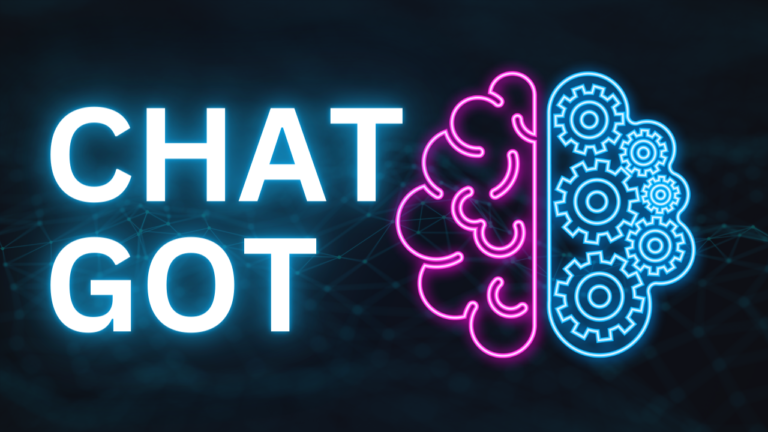
ChatGo: Revolutionizing Customer Engagement with Conversational AI
Introduction
In today’s fast-paced, digital-first world, customer engagement is more critical than ever. Consumers demand instant responses, personalized experiences, and seamless interactions with businesses. The rapid growth of conversational AI has provided businesses with innovative solutions to meet these demands. At the forefront of this revolution is ChatGo, a powerful and versatile conversational AI platform designed to streamline customer interactions, enhance user experiences, and help organizations automate and optimize their communication processes.
ChatGo is not just another chatbot. It is a sophisticated, AI-driven tool that utilizes advanced natural language processing (NLP), machine learning (ML), and deep learning (DL) technologies to simulate human-like conversations. Its applications span multiple industries, from customer support and e-commerce to education and healthcare, offering businesses a comprehensive solution to connect with their audiences more effectively.
In this article, we will delve into the functionality of ChatGo, explore its key features, examine its applications across various industries, and consider the broader impact of conversational AI on business operations and customer experience.
What is ChatGo?
At its core, it is a conversational AI platform that enables businesses to build intelligent virtual assistants capable of engaging in real-time conversations with users. The platform leverages the power of natural language processing (NLP) and machine learning algorithms to understand, interpret, and respond to customer inquiries in a human-like manner. This capability allows it to go beyond simple question-and-answer interactions, providing personalized, context-aware responses that enhance the overall user experience.
Unlike traditional rule-based chatbots, which rely on predefined scripts and decision trees to respond to user inputs, it uses deep learning and NLP to understand the intent behind each message. This allows the system to engage in more complex, multi-turn conversations, enabling it to handle a variety of customer needs, from simple queries to more complex issues that require dynamic problem-solving.
Key Features of ChatGo
ChatGo is equipped with a range of powerful features that make it an indispensable tool for businesses seeking to improve their customer engagement. Below are some of the platform’s most noteworthy capabilities:
1. Natural Language Understanding (NLU)
The heart of ChatGo’s conversational abilities lies in its natural language understanding (NLU) capabilities. NLU allows it to interpret and understand the meaning behind customer queries, even when they are phrased in different ways or contain nuances, slang, or colloquialisms. By leveraging advanced NLP techniques, it can accurately extract the intent of a message and respond accordingly, delivering a more natural and human-like conversation.
2. Context-Aware Conversations
One of the key strengths of it is its ability to maintain context throughout a conversation. Unlike traditional chatbots that can only respond to individual queries in isolation, it can remember previous interactions and build upon them. This allows the platform to engage in multi-turn conversations, providing more relevant and accurate responses as the conversation evolves. This contextual awareness ensures that users feel heard and understood, leading to better engagement and improved customer satisfaction.
3. Sentiment Analysis
ChatGo incorporates sentiment analysis, which enables it to gauge the emotional tone of a customer’s message. By analyzing the sentiment behind the words, it can tailor its responses accordingly. For example, if a user expresses frustration or dissatisfaction, the AI can acknowledge their emotions and provide empathetic responses. On the other hand, if a user expresses satisfaction or excitement, it can engage in a more positive, upbeat manner. This emotional intelligence helps foster better relationships between businesses and their customers.
4. Multilingual Support
As businesses operate in a globalized environment, it is essential to offer support in multiple languages. ChatGo offers robust multilingual support, enabling it to engage with users in a variety of languages. This feature is especially useful for businesses with international customers, as it allows them to break down language barriers and offer a more inclusive experience.
5. Integration with Third-Party Systems
ChatGo is designed to integrate seamlessly with a wide range of third-party systems, including customer relationship management (CRM) tools, marketing automation platforms, e-commerce systems, and more. This allows businesses to create a unified ecosystem that enables smooth data flow and enhances operational efficiency. For example, it can access customer data from a CRM system to provide more personalized recommendations or resolve support issues faster.
6. 24/7 Availability
One of the most significant advantages of it is its ability to provide round-the-clock customer support. Unlike human agents, who are limited by working hours and time zones, it is always available to answer questions and assist users, regardless of the time of day. This 24/7 availability ensures that businesses can offer uninterrupted service and meet the needs of customers at any time.
7. Analytics and Reporting
ChatGo provides comprehensive analytics and reporting tools that allow businesses to track key metrics related to customer engagement, such as response times, satisfaction levels, and common queries. These insights help organizations identify areas for improvement, refine their customer support strategies, and optimize the performance of their virtual assistant over time.
Applications of ChatGo Across Industries
The versatility of it makes it applicable across a wide range of industries. Whether it’s providing customer support, guiding users through complex processes, or enhancing marketing efforts, it can be customized to meet the unique needs of different sectors. Below are a few key industries where it is making a significant impact.
1. Customer Service
Customer service is perhaps the most common and impactful use case for conversational AI. ChatGo’s ability to provide instant, accurate, and context-aware responses allows businesses to offer high-quality support at scale. Whether customers are seeking answers to frequently asked questions (FAQs), troubleshooting technical issues, or inquiring about product availability, it can assist them without the need for human intervention.
By automating routine tasks, it frees up customer service agents to focus on more complex and specialized issues, thereby increasing overall productivity and reducing wait times. Additionally, it can provide 24/7 support, ensuring that customers have access to assistance whenever they need it.
2. E-Commerce
In the e-commerce sector, it can be used to enhance the online shopping experience by providing personalized product recommendations, assisting with order tracking, and answering product-related queries. By integrating with e-commerce platforms, it can analyze customer preferences, browsing history, and past purchases to suggest relevant items, leading to increased sales and higher customer satisfaction.
Moreover, it can help guide users through the checkout process, provide updates on delivery statuses, and handle post-purchase inquiries. This level of automation improves efficiency and reduces the need for human involvement, leading to cost savings and a more streamlined customer experience.
3. Healthcare
In the healthcare industry, it can be used to manage patient interactions, answer health-related questions, schedule appointments, and provide information about medical conditions or treatments. With the integration of medical databases and resources, it can offer accurate and up-to-date information to patients, reducing the burden on healthcare professionals and ensuring that patients receive timely assistance.
Furthermore, ChatGo’s ability to understand the context and sentiment of patient inquiries can help healthcare providers identify potential concerns early and respond appropriately. This can improve patient satisfaction and lead to better overall health outcomes.
4. Education
In education, it can serve as a virtual tutor or assistant, helping students with their coursework, answering questions, and guiding them through learning materials. By providing real-time, personalized feedback, it can support students in their learning journey, ensuring they receive the help they need when they need it.
Additionally, it can be used to manage administrative tasks, such as answering inquiries about school schedules, grading systems, and deadlines. This allows educational institutions to reduce administrative workloads and focus on delivering high-quality education.
5. Finance and Banking
It has the potential to transform the financial services sector by automating customer support, assisting with account management, and providing personalized financial advice. By integrating with banking systems, it can help users check account balances, transfer funds, pay bills, and receive updates on financial products.
Moreover, ChatGo’s ability to analyze sentiment and behavior patterns enables it to offer tailored recommendations based on an individual’s financial goals, helping customers make informed decisions about investments, savings, and budgeting.
The Future of ChatGo and Conversational AI
The future of it and conversational AI is bright. As AI technologies continue to advance, platforms like it will become increasingly sophisticated, enabling even more dynamic and context-aware conversations. The integration of voice recognition, machine learning, and AI-driven insights will further enhance the user experience, making conversations with virtual assistants even more seamless and natural.
Additionally, as businesses continue to realize the value of conversational AI, we can expect to see widespread adoption across industries, with it playing a key role in shaping the future of customer engagement. By enabling businesses to deliver faster, more personalized, and efficient communication, it is poised to become an essential tool in the digital toolbox of businesses worldwide.
Conclusion
It is a revolutionary conversational AI platform that is transforming the way businesses engage with customers. By leveraging cutting-edge natural language processing, machine learning, and deep learning technologies, it delivers human-like, context-aware conversations that improve customer experiences, automate support tasks, and optimize business operations. As the demand for personalized, efficient, and 24/7 customer support continues to grow, it will play an increasingly important role in helping businesses stay competitive in an ever-evolving digital landscape. Whether it’s answering customer queries, assisting with sales, or providing support in industries like healthcare and education, it is paving the way for a future where AI-powered conversations are at the heart of business success.


